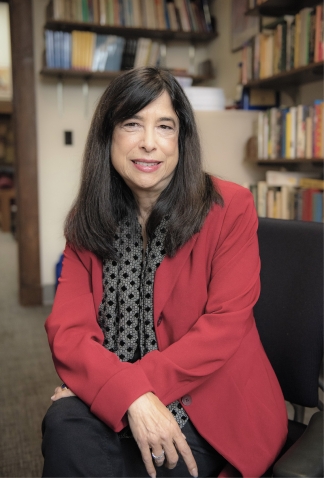“I’ve been studying families since the late 1970s because I find them endlessly fascinating,” says Rosanna Hertz, Class of 1919 50th Reunion Professor of Sociology and Women’s and Gender Studies and chair of the women’s and gender studies department. “Families have changed so profoundly and rapidly during my lifetime.”
Hertz chronicled some of those changes in her 2006 book, Single by Chance, Mothers by Choice, which drew on interviews with 65 middle-class women about why they chose to become parents without marriage. Near the end of her research and writing, Hertz began to wonder how families that begin with the aid of sperm banks view their relationship to the donor and to other children who share his DNA. For example, could they form a large, extended family? How would the group deal with geographic or socioeconomic differences?
Those questions led to three years of research, funded by the National Science Foundation, and to Random Families: Genetic Strangers, Sperm Donor Siblings, and the Creation of New Kin, co-authored with Margaret Nelson and recently published by Oxford University Press. “Central to the book is the question of who is family,” explains Hertz, who interviewed 350 members of various donor sibling (or “dibbling”) networks, as they are called.
Each chapter in the second part of the book follows a different donor network over an extended period, beginning with its initial interactions online, and shows both the excitement and ambivalence of many of the children.
As Hertz writes of Nick, who was 15 when he and his mother attended a weekend donor sibling “reunion,” he “hadn’t been quite sure whether the other children meant anything to him, whether sharing DNA made them relatives. Even after joining a ‘dibbling’ Facebook page, Nick held back, hesitant to make meaning out of this novel connection.”
Yet within hours at the reunion, Nick began to feel “we had this common connection. … I think on the first night we stayed up until two or three in the morning just discussing things.”
Hertz believes that for many donor siblings, ambiguity can lead to opportunity. “What became obvious very quickly is that shared genes are just a way to start a conversation. You have to get beyond ‘We share the same nose,’ to develop real intimacy,” she says.
Gradually, many of the children and teens come to rely on one another for emotional support, “talking” via text or phone late at night. “Some of them even find [platonic] soulmates,” says Hertz, which she says shows how a transaction—the purchase of sperm—can evolve into something amazing.
Hertz’s own life choices have led to some important developments over time. “The National Institutes of Health supported me during four years of graduate school at Northwestern University because they were trying to encourage more women to get Ph.D.s, and to write dissertations on subjects related to the family,” she explains. Hertz taught some of the first gender studies courses at Northwestern, and later here at Wellesley. “No one else was talking about gender when I came here 35 years ago to teach sociology courses on families, work, and organizations.”
Throughout her tenure, which includes 15 years of serving as chair of the Women’s and Gender Studies Department, she has encouraged students to pursue advanced degrees, and to assist her with research for articles and books. “I like to share the insider stories,” she says. “By explaining and involving students in the research process and discussing methodologies in classes, I help them understand the difference between research findings and their personal opinions.”
Hertz also urges students to make bold choices for their lives. “Expanding our ideas of who counts as family members—whether those individuals are genetic relatives or committed friends—can help with that because the modern family still remains the mainstay of intimacy in the world,” she explains. “It provides a sense of belonging that one can’t always get from paid work.”








We ask that those who engage in Wellesley magazine's online community act with honesty, integrity, and respect. (Remember the honor code, alums?) We reserve the right to remove comments by impersonators or comments that are not civil and relevant to the subject at hand. By posting here, you are permitting Wellesley magazine to edit and republish your comment in all media. Please remember that all posts are public.